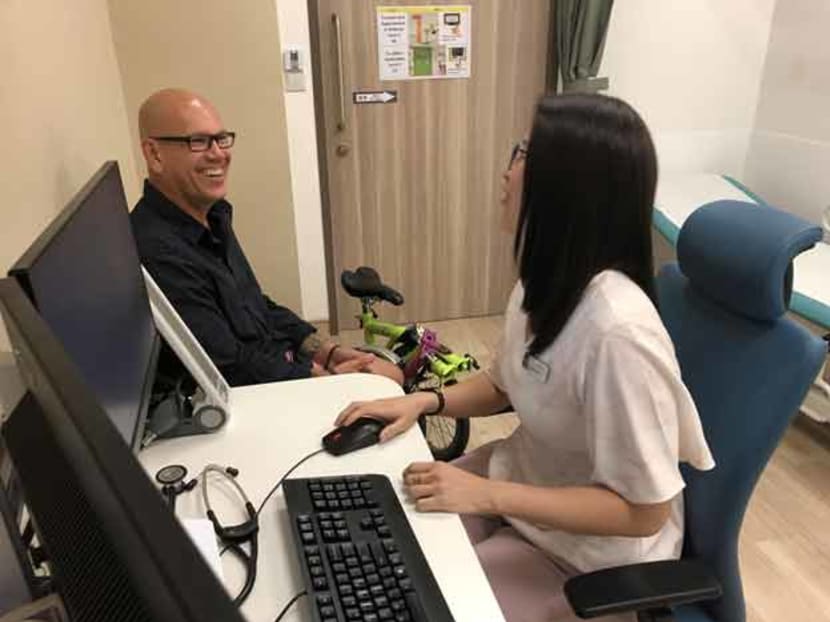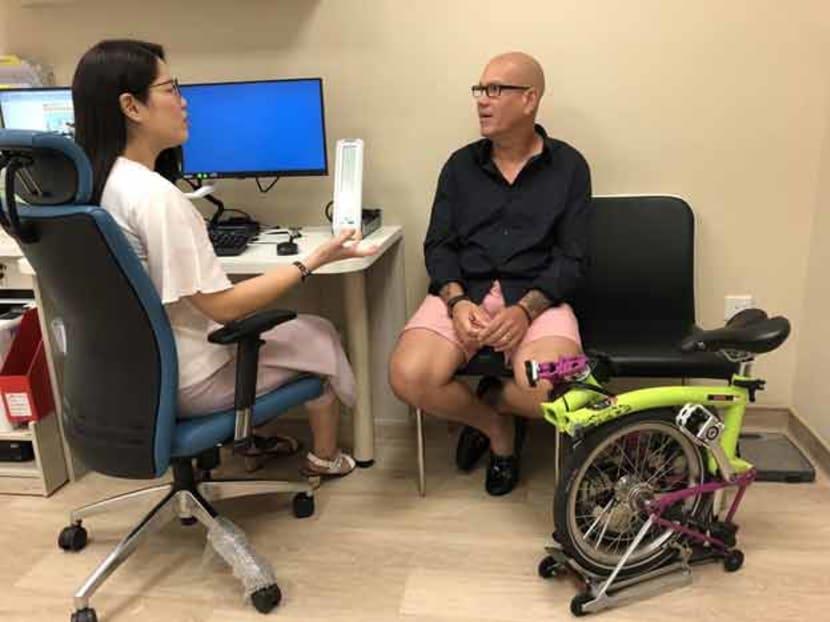All chronically-ill patients at NHG polyclinics to get same healthcare team during checkups by mid-2019
SINGAPORE — By June next year, all patients with chronic conditions such as diabetes and high blood pressure enrolled for follow-up consultations at National Healthcare Group Polyclinics (NHGP) will see the same doctors, nurses and support staff during their visits.
SINGAPORE — By June next year, all patients with chronic conditions such as diabetes and high blood pressure enrolled for follow-up consultations at National Healthcare Group Polyclinics (NHGP) will see the same doctors, nurses and support staff during their visits.
The extensive rollout to over 200,000 such patients comes after studies by the healthcare provider found that patients who were part of this care model were 49 per cent less likely to be readmitted to the hospital's Accident and Emergency ward, said the NHGP in a media briefing on Friday (Aug 17).
Specifically, those among the 20,000 patients studied who had diabetes were 16 per cent less likely to control their blood sugar levels poorly.
The care model was first pioneered at Toa Payoh Polyclinic in 2015, with the reorganisation of a group of polyclinic staff into "teamlets" to provide better primary care for their patients, of whom more than one in two had a chronic condition.
Each "teamlet" comprises two doctors, a nurse, and a care coordinator who keeps track of and follows up with patients on their appointments. When the need arises, an extended team of allied health professionals or pharmacists will be called in.
Currently, 25 "teamlets" are managing more than 100,000 chronically-ill patients across NHGP's six polyclinics in Ang Mo Kio, Toa Payoh, Hougang, Woodlands, Yishun and Geylang.
Each "teamlet" can manage an average of 5,000 patients, so NHGP — a first to adopt this multidisciplinary model in the primary care sector — will be increasing the number of teams to more than 30 to match the demand.
WHAT TO EXPECT
Under this model, patients will be encouraged to take a more proactive approach in managing their health as the care coordinator will schedule regular screening tests. For women, it can be reminders for mammograms or pap smears to check for breast and cervical cancer respectively. For diabetic patients, it can be screenings for their feet or eyes.
Depending on the severity of their conditions, patients may also be encouraged to exercise more in order to lose weight, as in the case of diabetes patient Leon Chester Stewart, 48, who lost 15kg between last December and May.
Dr Tricia Chang, who is Mr Stewart's regular doctor under the "teamlet" model, said she was able to find out what motivated him after building up a relationship with him over a few visits.

She said: "I told him, 'You are still young. If you don't control your diabetes, your quality of life in the future may drop and develop complications'.
"I think that really hit him because he says his children are still young adults."
Mr Stewart, a youth pastor at St Paul's Church, was diagnosed with diabetes in 2012. He told TODAY that his visits are now "more of a catch up session", and he is happy that he does not need to repeat his case history each time — which he used to dread.
What got him going "full steam ahead" to lead a healthy lifestyle and start cycling was one appointment when Dr Chang told him that he would have to switch to a higher dosage of insulin if he did not work hard on controlling his diet. He changed his ways as he felt his doctor had said this "with care and concern", and that she was "not out to scare me".
This care model also allowed him to reach Dr Chang via text message when he started having hypoglycemia — low blood sugar — regularly, and he was able to consult her to cut his insulin dosage before his next doctor's appointment.
Patients who face other issues such as the lack of family support at home will also receive greater care through the "teamlet" model, said Dr Karen Ng, NHGP's director of clinical services.
For instance, chronically-ill patients who live alone will be flagged so that their care needs can be identified, she added. As a follow-up, patients may be referred to a medical social worker or community service providers if they are found to be dealing with other related issues – such as financial problems – that contributed to their non-compliance in dealing with their chronic diseases.
Dr Ng said: "We have to look beyond illness in addressing the psychosocial needs of the patient. All these need to be addressed in order to achieve good health outcomes."









